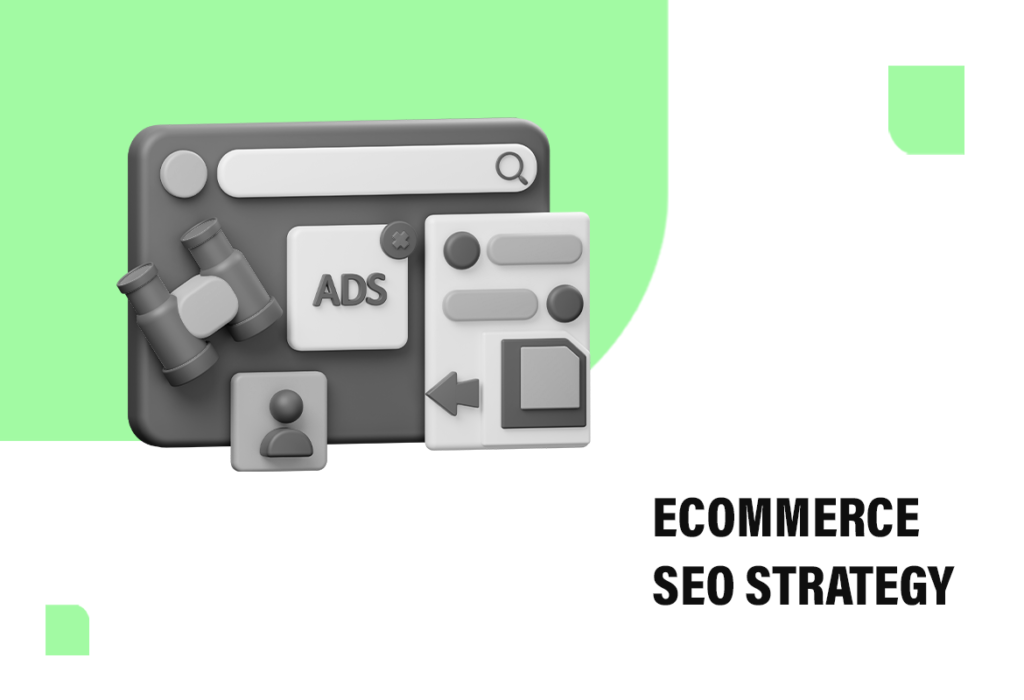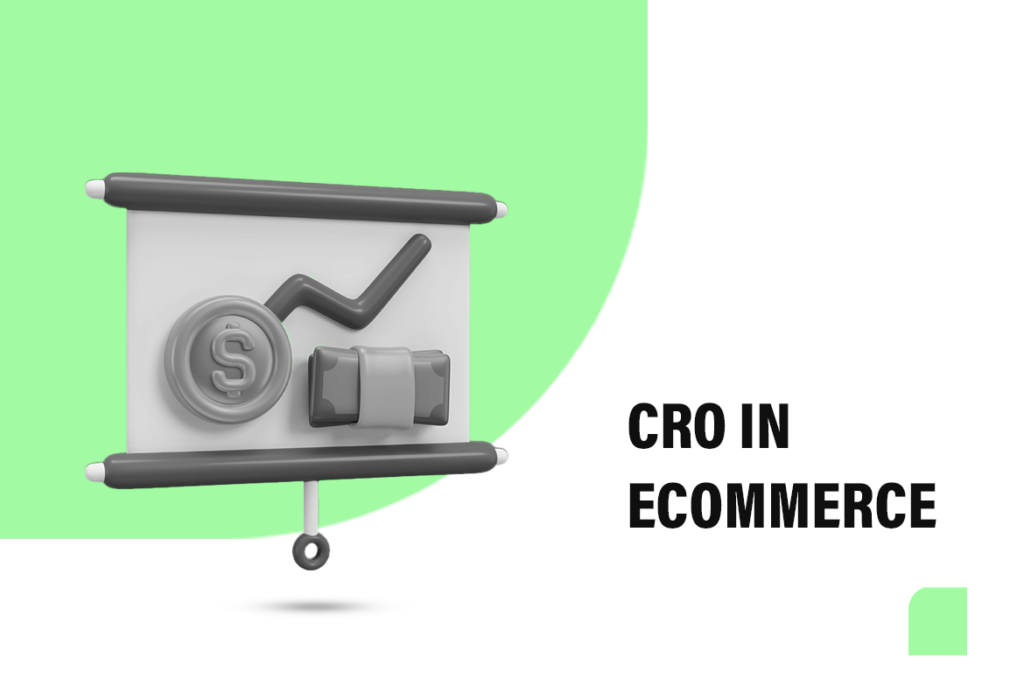Why does SEO matter for eCommerce?
Organic visibility is the foundation of e-commerce success, as it directly affects your store’s ability to attract new customers without relying on paid ads. When your online store ranks high in search engine results, it becomes more discoverable to potential customers who are actively searching for the products you offer. This increased visibility helps to a higher flow of organic traffic, which is critical for long-term growth and sustainability. Unlike paid traffic, organic visitors often have stronger purchase intent, resulting in better conversion rates.
How to create an ecommerce SEO Techniques
- keyword research: The foundation of an ecommerce SEO strategy starts with thorough keyword research, identifying the words that potential customers use when researching your products. Identifying both short-tail and long-tail keywords can help attract a wide audience with specific niches targeted. On-page optimization is also crucial, as it includes optimizing meta tags, alt texts, and URL structures to align with your target keywords. Creating high-quality, engaging content that meets the purpose of the search can significantly improve ranking.
- Mastering Search Intent: Understanding the search questions your potential customers are using is critical to customizing your ecommerce SEO strategy. So start by putting yourself in the customer’s shoes to anticipate the phrases they might use when searching for your products. Use tools like Google Search Console to analyze queries that are already bringing traffic to your site. In addition, explore using keyword research tools to discover queries and related variations targeting the same user’s goal. Do not lose sight of the importance of voice search, as users often formulate these queries differently.
- On-page optimization: is an essential aspect of ecommerce SEO, focusing on optimizing individual web pages to rank higher in search engines. Start by optimizing headline tags and meta descriptions with basic keywords to improve clickthrough rates. Make sure your URLs are correct and include relevant keywords to provide both visibility and SEO benefits. Use header tags (H1, H2, etc.) to organize your content logically and improve readability. Product descriptions should be unique and informative, and include naturally targeted keywords.
- Page Speed: improve page load speed and mobile responsiveness, as these factors significantly impact user experience and search rankings. Consistent on-page optimization efforts can greatly enhance your eCommerce site’s visibility and performance.
- Off-page SEO: A successful SEO strategy also includes off-page techniques such as link building, which boosts domain authority and search engine trust. Regularly monitoring analytics to track performance and adjust tactics is vital to staying competitive. By investing in a comprehensive SEO strategy, ecommerce sites can achieve higher search engine rankings, attract more successful traffic, and ultimately increase conversion rates. to know more about What is Off Page SEO and On Page SEO and local SEO? Click Here
- Structuring pages: Structuring effective web pages is pivotal to boosting your ecommerce site’s rankings. Start with a clear and logical hierarchy in your site structure, making it easier for search engines and users to navigate. Implement navigation in the navigation funnel to improve user experience and provide additional context for search engines. Make sure that internal linking links relevant pages, guides users through your site and effectively distributes link rights. In addition, a well-structured URL should be concise and include keywords that are relevant to the content of the page. Finally, consider using schema markup to provide search engines with explicit information about the content of your site.
- Structured data: plays an important role in boosting your ecommerce site’s visibility and performance on search engines. With schema markup, you can provide search engines with accurate information about your products, such as price, availability, and reviews, which can lead to rich snippets appearing in search results. These optimized menus often lead to higher click-through rates, as they provide users with more detailed insights straight from the search page. This process helps search engines understand the context and relationships within your content. Tools like Google’s structured data testing tool can be invaluable for checking coding for errors before execution. By integrating structured data, your ecommerce site not only improves its chances of ranking higher, but also stands out in search results, attracting more potential customers and boosting overall conversion rates.
- Product Descriptions: Writing an attractive product description is key to grabbing the interest of potential buyers and SEO optimizing for your ecommerce site. Start by focusing on the benefits of your product, not just the features, to illustrate how it can meet the customer’s needs or solve a problem. Use clear and concise language to ensure ease of reading and understanding. Naturally incorporate relevant keywords into the description to improve search engine visibility without compromising readability. Catchy descriptions should also include sensual words and storytelling elements to create an emotional connection with the reader. Include any unique selling offers.
- Tracking Bounce and Conversion Rates: Monitoring bounce and conversion rates is essential to evaluate the effectiveness of an ecommerce SEO strategy. A high bounce rate may indicate that visitors are not finding what they expect or that the site needs better navigation or faster loading times. Identifying these issues through tools like Google Analytics allows for targeted improvements. Conversely, conversion rates provide insight into how well your site is converting visitors into customers, reflecting the overall user experience and aligning your content with user intent. Analyzing funnels can help identify places where users are falling, enabling strategic adjustments to improve your sales funnel.
Best Ecommerce SEO Tools
Selecting the right SEO tools is essential for optimizing your eCommerce site effectively. Google Keyword Planner is a fundamental tool for discovering relevant keywords and understanding search volume. For more comprehensive analysis, Ahrefs and SEMRush offer insights into keyword difficulty, backlink profiles, and competitor strategies, providing a well-rounded SEO overview. Moz, with its suite of tools, is excellent for tracking keyword rankings and site audits.
Keywords Everywhere is a handy browser extension that shows keyword metrics on the go. For content ideas and understanding user queries, Answer The Public visualizes search questions and phrases. Google Analytics and Google Search Console are indispensable for monitoring website performance, understanding user behavior, and identifying areas for improvement. Utilizing these tools helps streamline your SEO efforts, ensuring your strategies are data-driven and effective. By leveraging these resources, eCommerce businesses can enhance their organic visibility, optimize their site structure, and ultimately drive more traffic and conversions.
خاتمة
Mastering eCommerce SEO is a strategic investment that can significantly enhance your online store’s organic visibility, driving sustainable growth and outpacing competitors. By implementing a robust SEO strategy that includes thorough keyword research, on-page optimization, and link building, businesses can improve search engine rankings and attract a steady stream of qualified traffic. Leveraging long-tail keywords and structured data further refines these efforts, reducing bounce rates and increasing conversion rates.
Additionally, crafting unique and relevant content, coupled with effective internal linking, bolsters user engagement and search engine indexing. Monitoring essential metrics such as bounce and conversion rates allows for ongoing optimization, ensuring your strategy remains effective. Utilizing the best eCommerce SEO tools helps streamline processes and informs decision-making. By embracing these strategies, your eCommerce site can achieve better organic visibility, higher customer satisfaction, and greater revenue potential, securing a strong position in the competitive digital marketplace.
كودستان‘s website can help you achieve these goals by providing tailored solutions that enhance your eCommerce SEO efforts, ensuring your online presence thrives.
التعليمات
What is eCommerce SEO?
ECommerce SEO is the process of optimizing online stores to improve their visibility in search engine results. It involves strategies such as keyword research, on-page optimization, and link building to attract organic traffic.
Why is keyword research important for eCommerce?
Keyword research helps identify the terms potential customers use to search for products. Targeting these keywords can increase visibility and drive more relevant traffic to your site.
How does structured data benefit eCommerce websites?
Structured data provides search engines with specific information about your products, enhancing visibility with rich snippets in search results, which can improve click-through rates.
What role do long-tail keywords play in SEO?
Long-tail keywords, being more specific, attract highly targeted traffic with a clearer purchase intent, often resulting in higher conversion rates.
How can I monitor my site’s SEO performance?
Use tools like Google Analytics and Google Search Console to track key metrics such as traffic, bounce rate, and conversion rates, helping you adjust your SEO strategy as needed.










